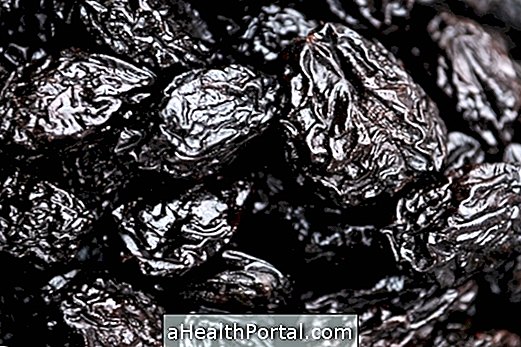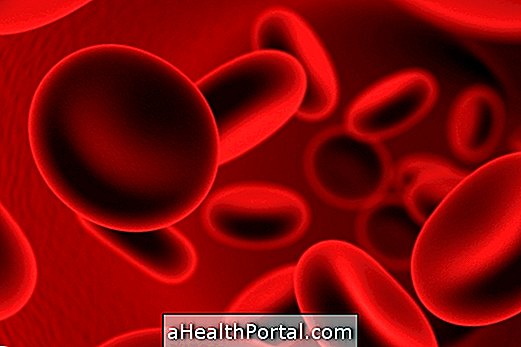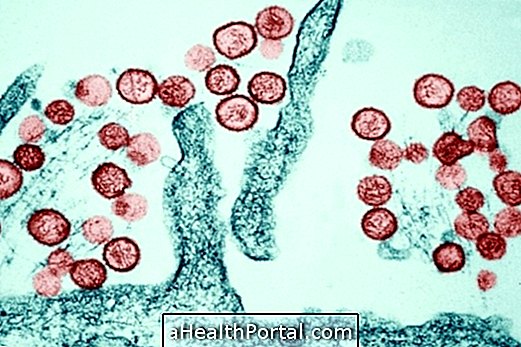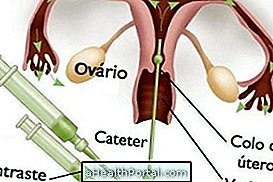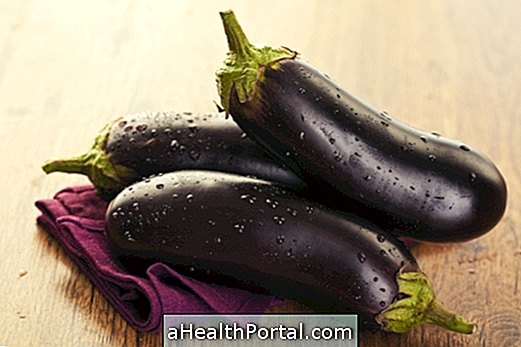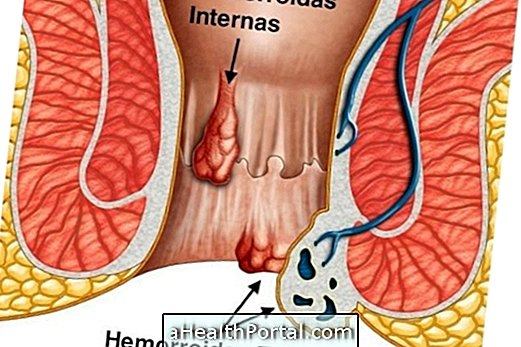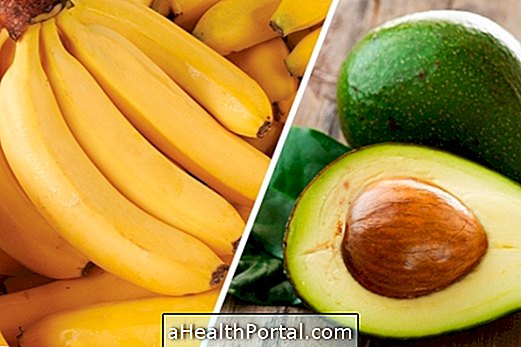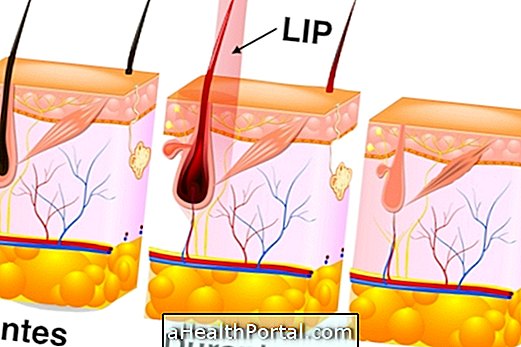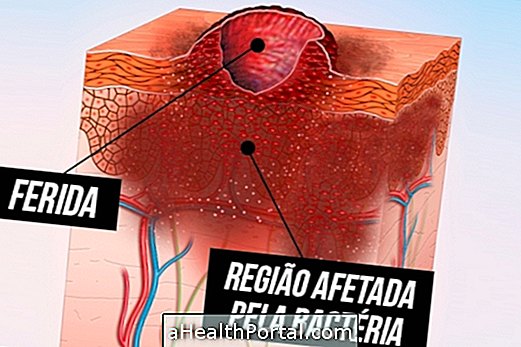Including fish regularly in the diet brings benefits such as improving memory, concentration, preventing cardiovascular disease and reducing inflammation. In addition, consuming fish helps in weight loss as they are usually sources of proteins with fewer calories than red meats and chicken, favoring diets for weight loss.
To get these benefits, you should consume fish at least 3 times a week, and it is important to remember that it does not hurt to eat fish every day. Here are the top 5 benefits of fish:
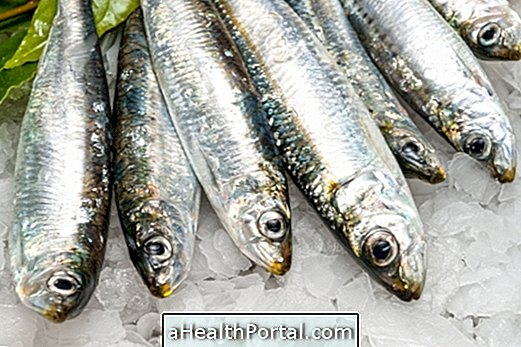
1. Provide protein for the body
Fish are great sources of protein and can be used to replace meat and chicken from the diet. Proteins are important nutrients for the formation of muscle mass, hair, skin, cells and the immune system, being an essential nutrient for health.
Lean fish such as sea bass, grouper and sole are less caloric sources of protein, while fatty fish like salmon, tuna and sardines contain more calories.
2. Prevent cardiovascular diseases
Fish are sources of good fats, especially those from salt water such as tuna, sardines and salmon, as they are rich in omega-3, a nutrient found in deep sea waters.
Omega-3 acts in the body by reducing bad cholesterol and increasing good cholesterol, as well as reducing inflammation and improving the immune system. With this, fish consumption reduces the risk of cardiovascular diseases such as atherosclerosis and infarction, in addition to preventing other problems, such as stroke.

3. Improve memory and prevent Alzheimer's
Consuming fish regularly prevents the loss of gray matter in the brain, which is linked to the onset of degenerative diseases such as Alzheimer's. This benefit is linked to the presence of omega-3s and nutrients such as calcium and phosphorus, important for the transmission of nerve impulses.
4. Relieve the symptoms of arthritis
Omega-3 rich fish, such as salmon, tuna and mackerel, help alleviate the symptoms of arthritis by having anti-inflammatory properties. By increasing the levels of omega-3 in the body, the inflammation in the joints is reduced and the pain diminishes. This benefit can also be obtained by consuming supplements with fish oil or omega-3, but it is important to note that the consumption of natural food enhances the benefits of its nutrients.
5. Provide vitamin D
Fish are the best sources of vitamin D in food, especially fatty fish, because this vitamin is stored in the fat of food. Vitamin D works as a steroid hormone in the body, being important to prevent problems like diabetes, infertility, cancer and heart problems.
In addition, vitamin D increases the absorption of calcium in the gut, helping to prevent osteoporosis, especially after menopause.

Nutritional information of some types of fish
The following table shows the amount of calories, fat and protein for 100 g of fish, separating them into 2 categories: lean and fat fish.
| Calories | Fat | Proteins | |
| Skinny fish | |||
| Codfish | 73.8 | 0.20 g | 18.00 g |
| Whiting | 96.5 | 2.75 g | 17.94 g |
| Corvina | 100 | 1.20 g | 20.80 g |
| Golden | 80 | 0.50 g | 18, 30 g |
| Grouper | 87 | 1.21 g | 18.03 g |
| Sole | 87 | 0.50 g | 19.00 g |
| Hake | 97 | 1.30 g | 20.00 g |
| Sea bass | 72 | 0.30 g | 17.20 g |
| Cherne | 81.4 | 0.38 g | 19.90 g |
| Trout | 89.3 | 1.67 g | 18.49 g |
| Rooster | 109 | 2.70 g | 19.90 g |
| Snapper | 97 | 1.30 g | 20.00 g |
| Fatty fish | |||
| Tuna fish | 146 | 5.20 g | 24.8 g |
| Mackerel | 138.7 | 7.10 g | 18.7 g |
| Mullet | 173 | 8.96 g | 22.87 g |
| Salmon | 211 | 13.40 g | 22.50 g |
| Sardine | 124 | 5.40 g | 17.70 g |
| Catfish | 178.2 | 11.40 g | 18.90 g |
| Cation | 129 | 5.40 g | 18.80 g |
It is important to remember that the ideal is to prepare fish only with olive oil in the oven, or make grilled or cooked preparations, along with vegetables and vegetables to increase the nutritional value of the meal.
Benefits of eating raw fish
The benefits of eating raw fish are lowering the risk of heart disease, contributing to brain development, regenerating nerve cells, helping to form tissues, preventing bone disease and fighting anemia due to its richness in omega 3, protein, vitamin D, calcium, iron and vitamin B12. See: 3 reasons to eat sushi.
Any food subjected to heat loses some nutrients, but fish have their benefits especially in nutrients that are not spoiled by heat and so the benefits remain even raw and when cooked.

What kind of fish do you eat during pregnancy?
Eating fish in pregnancy is healthy, but pregnant women should give preference to ready-made and unprocessed fish because raw fish is a food that spoils and contaminates more easily and can lead to food poisoning. In addition, some raw foods may also be contaminated and cause a disease called toxoplasmosis, which causes defects in the formation of the fetus.
Pregnant women should also avoid fish such as catfish, tuna and painted, as they are at increased risk of contamination by heavy metals, such as mercury, which hinder the healthy development of the baby. Learn more about what types of fish the pregnant woman should avoid.

